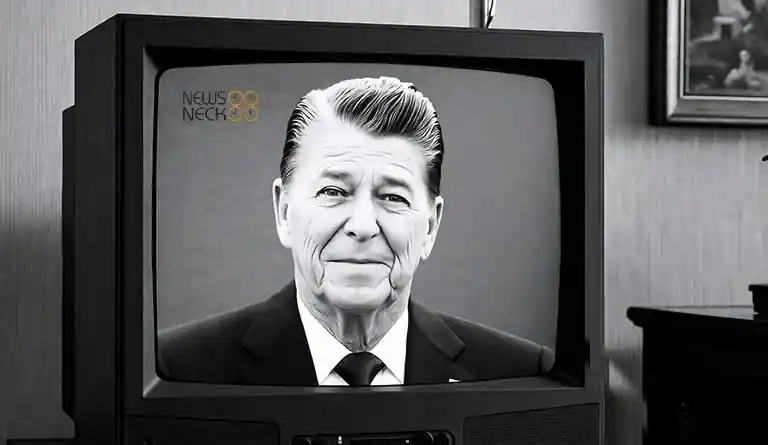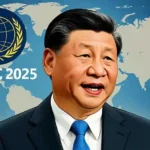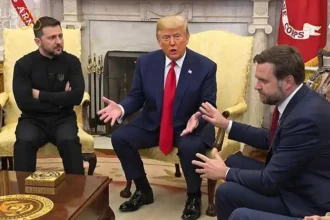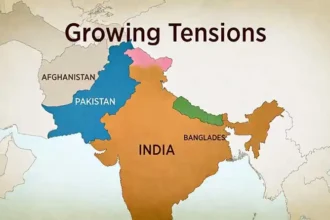Canada’s Prime Minister Apologizes to Trump Over Reagan Ad But What Happened Next Surprised Everyone
The usually calm and composed Canadian Prime Minister Mark Carney found himself in the middle of an unexpected political storm this week. What began as a controversial advertisement in Ontario turned into an international issue involving U.S. President Donald Trump, tariffs, and even China’s Xi Jinping all unfolding during the Asia-Pacific summit in Gyeongju, South Korea.
By the time Carney stepped in front of reporters on Saturday, the story had already caught global attention. Calmly but firmly, he confirmed what everyone had been whispering about: he had personally apologized to President Trump over an anti-tariff political advertisement that had offended Washington.
“I did apologize to the Mr. Trump,” Carney said, his voice steady but serious. “And I told Premier Ford not to move forward with the ad.”
The Advertisement That Sparked the Controversy
The drama began when Ontario Premier Doug Ford, a strong Conservative voice in Canadian politics, released a political advertisement criticizing Trump’s tariff policies. The ad used a clip of former U.S. President Ronald Reagan, one of America’s most admired Republican leaders, warning that tariffs could lead to “trade wars and economic disaster.”
The message hit hard perhaps too hard. Within hours, the White House reacted sharply. President Trump, clearly unhappy, announced new tariffs on Canadian goods and ordered that trade talks with Canada be halted.
Behind the scenes, Carney, who was attending the Asia-Pacific summit at the time, worked quietly to calm tensions. He later confirmed that he had reviewed the ad before it was released but had advised Ford not to run it. “I told him I did not want to go forward with the ad,” Carney told reporters. But Ford, known for his bold political style, went ahead anyway.
You Might Like it: Baba Vanga Predictions Meets Donald Trump Policies
The Private Apology
A few days later, both leaders attended a dinner hosted by South Korean President Lee Jae Myung. It was there, during a quieter moment, that Carney approached Trump privately.
According to Carney, their conversation was “cordial and respectful.” He expressed regret over the ad and clarified that it did not represent his government’s position. Trump later confirmed the apology during his own remarks to reporters, describing the exchange as “a very nice conversation.”
Yet, despite the polite words, Washington did not lift the new tariffs, and Trump made it clear that trade talks between the U.S. and Canada would remain on hold.
For Canada, this pause in dialogue adds pressure to an already strained relationship with its biggest trading partner. For Carney, however, it also presented a moment of reflection and a chance to look beyond the U.S. for future partnerships.
Turning Point With China
Just a day after the apology, Carney met with Chinese President Xi Jinping, marking the first official meeting between Canadian and Chinese leaders since 2017. That previous meeting, held during Justin Trudeau’s time as Prime Minister, had been brief and uneasy.
This time, the atmosphere was cautiously optimistic. “It was a turning point,” Carney said. “After years of tension, we were finally able to speak openly.”
Relations between the two countries had grown cold in recent years. Several Canadian citizens were detained and executed in China, and Canadian intelligence agencies had reported foreign interference in at least two federal elections with evidence pointing toward Beijing.
Carney said that during his conversation with Xi, he raised the issue of interference and emphasized the need for transparent and respectful diplomacy. “We discussed our differences,” he said, “but also how we can move forward.”
His goal, he explained, was part of a broader plan: to reduce Canada’s reliance on the United States and diversify trade and diplomatic relationships across Asia.
Also Read: US-China Trade Deal 2025: Trump, Xi Near Tariff Truce
The Bigger Picture
For Carney, the trip to South Korea was about more than damage control it was about redefining Canada’s place in the global economy. The tensions with Trump highlighted how dependent Canada’s economy had become on its southern neighbor.
By building stronger relationships in Asia, Carney hopes to create a future where Canada is less vulnerable to political shifts in Washington. But such a transformation will not come easily. Balancing trade with both China and the U.S. requires delicate diplomacy, and one wrong step could trigger further conflict.
Still, observers noted that Carney’s calm demeanor and willingness to take responsibility stood out. In an age of political defensiveness, his direct apology to Trump showed a different kind of leadership one that values diplomacy over confrontation.
What Comes Next
As the summit wrapped up in Gyeongju, both leaders left South Korea with unfinished business. Trump flew home confident in his stance on tariffs, while Carney began charting a new diplomatic course for Canada.
For now, the ad that sparked the controversy has been pulled, and Ford has faced criticism for his decision to release it. But the episode left a lasting mark on Canada-U.S. relations a reminder of how one short video clip can ripple across oceans and impact global politics.
Carney’s apology may have soothed some tensions, but the story is far from over. As one analyst in Seoul put it, “What we’re seeing is not just a political disagreement it’s the reshaping of alliances.”
In a world where a single advertisement can freeze trade talks between two allies, Carney’s challenge is clear: to rebuild trust, one conversation at a time.
Author: Yasir Khan
Date: 01 Nov, 2025
For More Updates, Visit Newsneck













